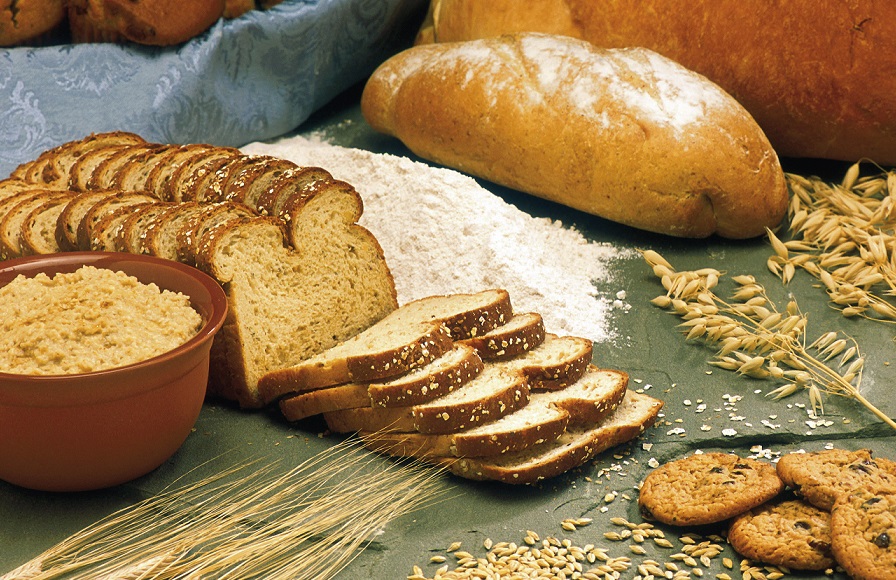Although carbohydrate-rich foods have long been an essential part of the human diet, the demonization of carbohydrates is a relatively recent phenomenon.
Ushered into the consumer consciousness in the 1970’s and 1980’s with the birth of the low-carb diet trend, consumers have since dabbled in low-carb crazes as a way to lose weight, with the Atkins Diet, South Beach Diet, and Paleo Diet all advocating some degree of carbohydrate restriction.
Should consumers go low-carb to lose weight?
While most epidemiologists and medical professionals agree that most people consume far more than their necessary share of calories, and calories from carbohydrate, the consumption of carbohydrate alone is not enough to promote weight gain. While fluctuations in water weight are expected on low-carb diets, tangible, lasting weight and fat loss is not largely related to carbohydrate consumption.
Calorific intake (i.e. the number of calories you consume relative to the number you expend, through exercise and activities of daily living) serves as the ultimate determinant of body weight.
If you consume more calories than your body needs to maintain weight, you will gain weight, regardless of whether those calories come from carbohydrate, protein or fat. In order to lose weight, you must consume fewer calories than your body needs to maintain its current weight in order to create a calorific deficit. In order to maintain weight, you must maintain a balance of calories “in” (calories consumed) to calories “out” (calories expended).
While going “low-carb” isn’t necessary to promote a healthy body weight outcome, controlling calories is. Of course, a healthy body weight isn’t necessarily enough to prevent disease. Interestingly, even relatively lean individuals (consumers with appropriate body weight and BMI) can suffer from health conditions related to the overconsumption of simple carbohydrates (“bad” carbohydrates) and added sugars.
Prediabetes and Non-alcoholic Fatty Liver Disease- both of which are conditions related to the overconsumption of carbohydrate- now affect 1 in 4 Americans. While being overweight or obese increases risk for these conditions, even lean, normally weighted individuals may be impacted.
Ideally, consumers should aim to maintain a healthy body weight and consume the right types of foods, including foods from carbohydrate.
What types of carbohydrate are best?
While carbohydrate-containing foods are necessary for human health and can contribute important nutrients to the diet, the overconsumption of carbohydrate can have deleterious health effects. The risk for prediabetes, Type II diabetes, metabolic syndrome, non-alcoholic fatty liver disease, and heart disease all tend to increase as carbohydrate consumption increases, despite the fact that carbohydrate consumption alone is not enough to cause overweight/obesity.
Studies have shown that the overconsumption of carbohydrate-containing foods (especially simple/refined carbohydrates and added sugars) can increase the likelihood of disease even in the absence of obesity. Many lean individuals are diagnosed with prediabetes, Type II Diabetes, and non-alcoholic fatty liver disease as a consequence of the overconsumption of carbohydrate. Although heart disease has not been shown to be caused directly by the overconsumption of carbohydrate, it can be a contributing factor for individuals who are already at an increased risk.
Regardless of individual disease risk, consumers should aim to consume no more than 45-65% of their daily Caloric intake from carbohydrate. Keep in mind that carbohydrate is in many products, including grain, dairy, fruit, and vegetable products. It is important to be discerning about the types of carbohydrates you consume on a daily basis.
While desserts, snack foods, and other simple carbohydrates are fine in moderation, the majority of Calories contributed from carbohydrates should be from lean dairy, whole grains, fruits, and vegetables, rather than refined flours (which may be found in white bread, pasta, rice, baked goods, snack foods, and dessert products), Calorific beverages (juice, carbonated drinks, sports drinks, energy drinks, and gourmet coffee beverages), or added sugars (in snack foods, dessert products, sauces, condiments, and beverages).
As stated, carbohydrate consumption should come from a good quality source, and not from refined and processed food, for optimum health, and well-being.
